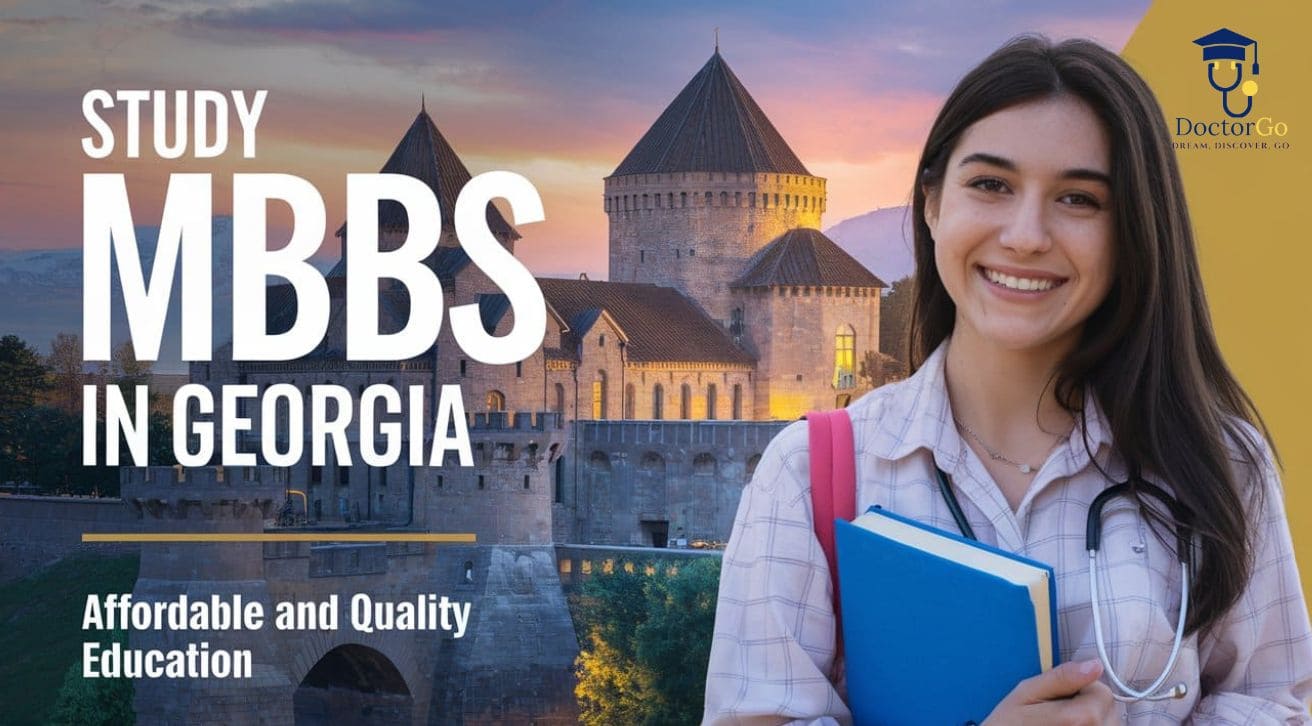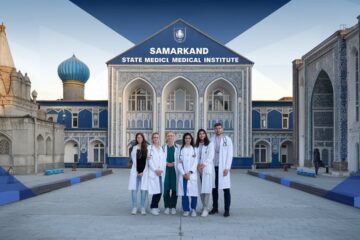Table of Contents
Introduction
Overview of Studying MBBS in Georgia
Georgia has emerged as a popular destination for international students, particularly from India, seeking quality medical education. Renowned for its affordable tuition fees, globally recognized degrees, and welcoming environment, Georgia offers an excellent opportunity for aspiring doctors to pursue their dreams. This guide provides an in-depth look into the benefits, top universities, course structure, admission requirements, and student life in Georgia.
Benefits for Indian Students
- Getting an affordable education: Studying MBBS in Georgia costs significantly less than attending private medical colleges in India.
- International recognition: Medical degrees from Georgian universities are recognized by major global bodies such as the WHO, NMC, and WFME.
- Courses in English: All courses are taught in English, so international students don’t have to worry about language barriers.
- Safe and friendly environment: Georgia is known for its safety, lively culture, and welcoming locals, making it an ideal place for students.
Why Study MBBS in Georgia?
Quality of Education and International Recognition
Georgian medical universities uphold high academic standards that are on par with international norms. The curriculum is designed to provide comprehensive knowledge and practical skills, ensuring graduates are well-prepared for global medical practice. Recognition by the World Health Organization (WHO), National Medical Commission (NMC), and World Federation for Medical Education (WFME) adds significant value to the degrees obtained.
Cost of Education and Living
Studying in Georgia is economically advantageous as tuition fees are relatively low, and the cost of living is affordable, making it accessible to a broader range of students. On average, students can expect to spend around $300-$400 per month on living expenses, including accommodation, food, and transportation.
Medium of Instruction
All medical programs for international students are conducted in English, ensuring that language is not a barrier to learning. This is particularly beneficial for students from non-Georgian speaking countries.
Safety and Lifestyle
Georgia is known for its high safety standards and low crime rates. The lifestyle is vibrant and culturally rich, offering students a unique experience. The local community is friendly and welcoming to international students, fostering a supportive environment for education and personal growth.
GET IN TOUCH
Book A Call Now
Top Medical Universities in Georgia
Tbilisi State Medical University

- Established over a century ago, it is one of the oldest and most prestigious medical institutions in Georgia.
- Offers a wide range of medical programs and is renowned for its experienced faculty and research facilities.
David Tvildiani Medical University
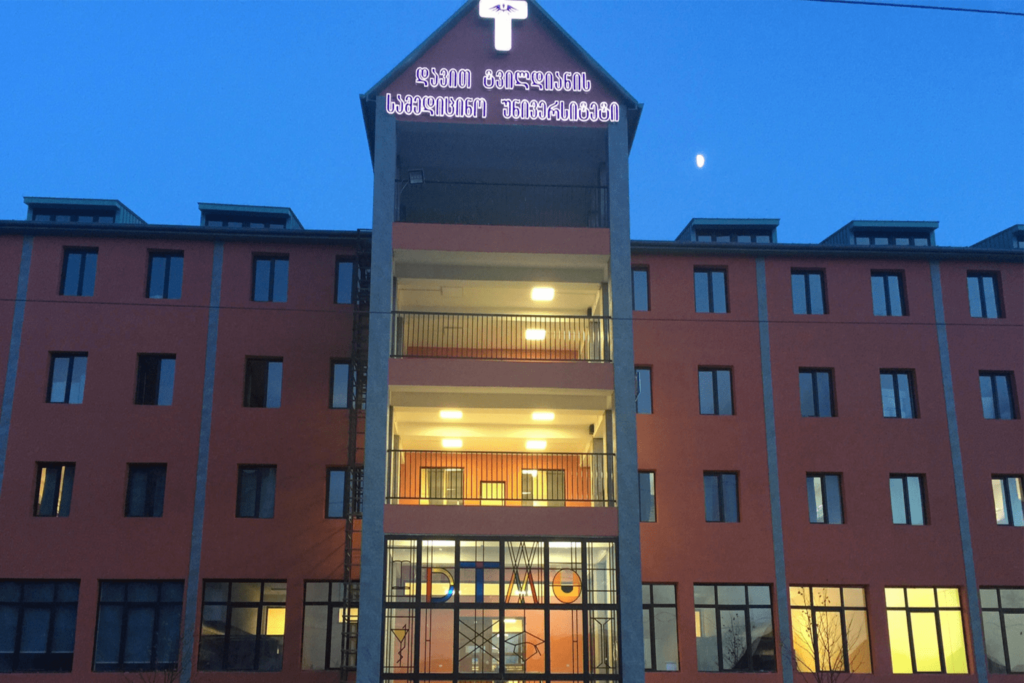
- Known for its rigorous academic standards and strong emphasis on research.
- Provides excellent training and has a high rate of student success in international medical exams.
Caucasus International University
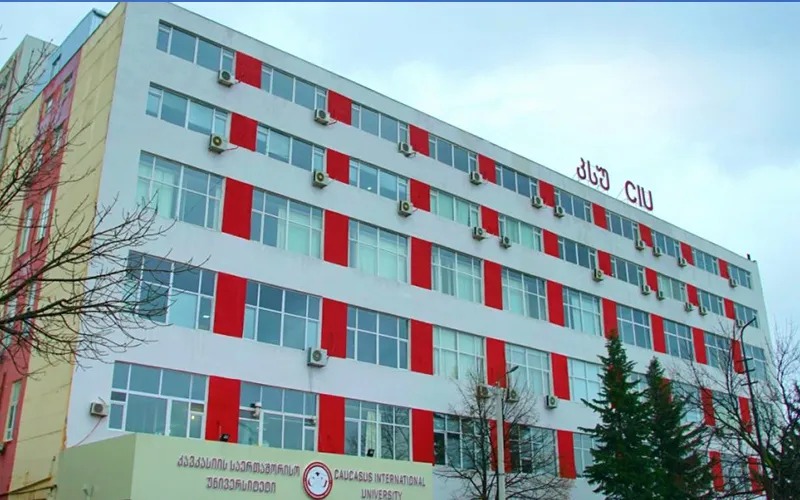
- Offers diverse medical programs with state-of-the-art facilities and modern teaching methods.
- Focuses on providing a well-rounded education with practical and theoretical knowledge.
University of Georgia

- Features excellent infrastructure and ample opportunities for practical training.
- Known for its supportive student environment and comprehensive medical curriculum.
Batumi Shota Rustaveli State University
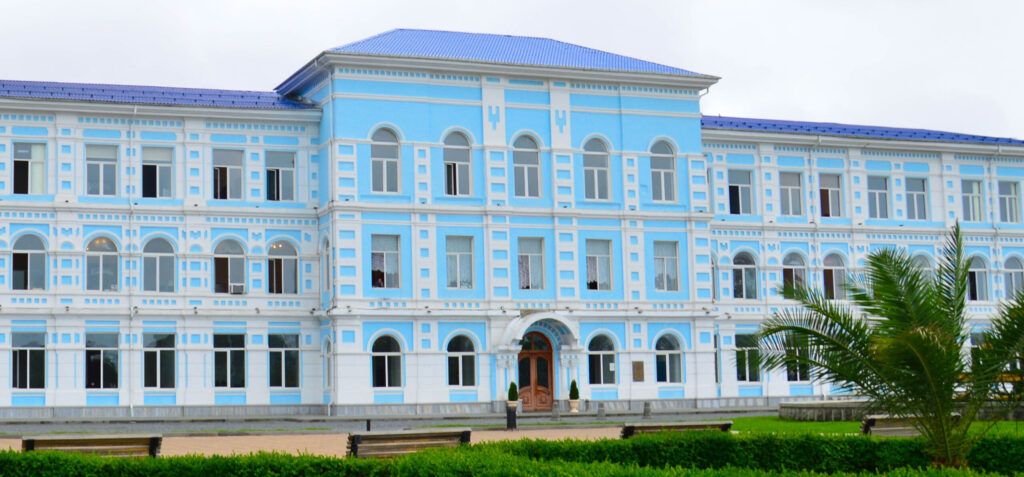
- Balances theoretical knowledge with practical experience, ensuring students receive a holistic medical education.
- Provides a strong foundation in medical sciences and clinical practice.
Course Details and Curriculum
Duration and Structure of the MBBS Program
The MBBS program in Georgia typically spans six years, which includes five years of academic study and one year of mandatory internship. The curriculum is structured to gradually transition students from basic sciences to clinical practices and specialties.
Subjects and Semesters Breakdown
- Years 1-2: Basic medical sciences including Anatomy, Physiology, Biochemistry, and Histology.
- Years 3-4: Pre-clinical subjects such as Pathology, Pharmacology, Microbiology, and Community Medicine.
- Years 5-6: Clinical rotations in various specialties including Surgery, Internal Medicine, Pediatrics, Obstetrics and Gynecology, and Psychiatry.
- Internship: One-year clinical practice in hospitals, where students apply their knowledge and gain hands-on experience under supervision.
Internship and Practical Training
Practical training is integrated throughout the MBBS program. The final year focuses entirely on clinical practice, allowing students to work directly with patients, understand real-world medical scenarios, and develop their professional skills.
Admission Requirements
Eligibility Criteria
To be eligible for MBBS in Georgia, students must meet the following criteria:
- Must be at least 17 years old by December 31 of the admission year.
- Should have completed 10+2 with Physics, Chemistry, Biology, and English.
- Must have a minimum of 50% marks in 10+2.
- Need to qualify the NEET exam.
Required Documents
- Passport with a minimum of 18 months validity.
- 10th and 12th certificates and mark sheets.
- NEET scorecard.
- Birth certificate.
- Passport-size photographs.
- University invitation letter.
- Visa application documents.
Application Deadlines and Process
Applications typically begin in March, and deadlines vary by university. It is advisable to apply early to secure a place. The process involves submitting the required documents, receiving an invitation letter from the university, and applying for a student visa.
Fees and Scholarships
Tuition Fees Breakdown
Tuition fees for MBBS programs in Georgia range from $3,000 to $8,000 per year, depending on the university. This is significantly lower than many other countries offering comparable quality of education.
Cost of Living
The average monthly living expense in Georgia is around $300-$400, which includes accommodation, food, transportation, and other personal expenses.
Available Scholarships and Financial Aid
Several Georgian universities offer scholarships and financial aid to international students based on academic performance and financial need. Students are encouraged to check with their respective universities for specific scholarship opportunities.
Student Life in Georgia
Accommodation Options
Students can choose from various accommodation options, including university dormitories, private apartments, and shared housing. University dormitories are affordable and provide a convenient living environment close to the campus.
Food and Cultural Adaptation
Georgia offers a rich culinary tradition with plenty of options for vegetarians and non-vegetarians alike. Students will find familiar international cuisine as well as local Georgian dishes. Adapting to the local culture is easy due to the friendly and welcoming nature of Georgians.
Extracurricular Activities and Student Support
Universities in Georgia encourage a balanced lifestyle with various extracurricular activities, including sports, cultural events, and student organizations. Additionally, international student offices provide support services to help students adjust and thrive in their new environment.
GET IN TOUCH
Book A Call Now
Myths vs Facts
| Myth: | Georgian medical degrees are not recognized internationally. |
| Fact: | Medical degrees from Georgia are recognized by WHO, NMC, and other international bodies, ensuring global acceptance. |
| Myth: | The quality of education in Georgian medical universities is low. |
| Fact: | Georgian medical universities offer high-quality education that meets international standards, with comprehensive curricula and modern facilities. |
| Myth: | Studying in Georgia is expensive. |
| Fact: | The cost of studying MBBS in Georgia is affordable, with lower tuition fees and living expenses compared to many other countries. |
| Myth: | Language will be a barrier in Georgian medical universities. |
| Fact: | The medium of instruction for international students in Georgian medical universities is English, eliminating language barriers. |
FAQs
What is the eligibility for MBBS in Georgia?
To be eligible for MBBS in Georgia, students must be at least 17 years old by December 31 of the admission year, have completed 10+2 with Physics, Chemistry, Biology, and English, and have a minimum of 50% marks in 10+2. Additionally, students must qualify the NEET exam.
Are Georgian medical degrees recognized globally?
Yes, medical degrees from Georgian universities are recognized globally by major bodies such as WHO, NMC, and WFME, ensuring that graduates can practice medicine worldwide.
What are the living expenses for students in Georgia?
The average living expenses for students in Georgia range from $300 to $400 per month, covering accommodation, food, transportation, and personal expenses.
How safe is Georgia for international students?
Georgia is considered very safe for international students, with low crime rates and a welcoming local community. Universities also provide support services to ensure student safety and well-being.


